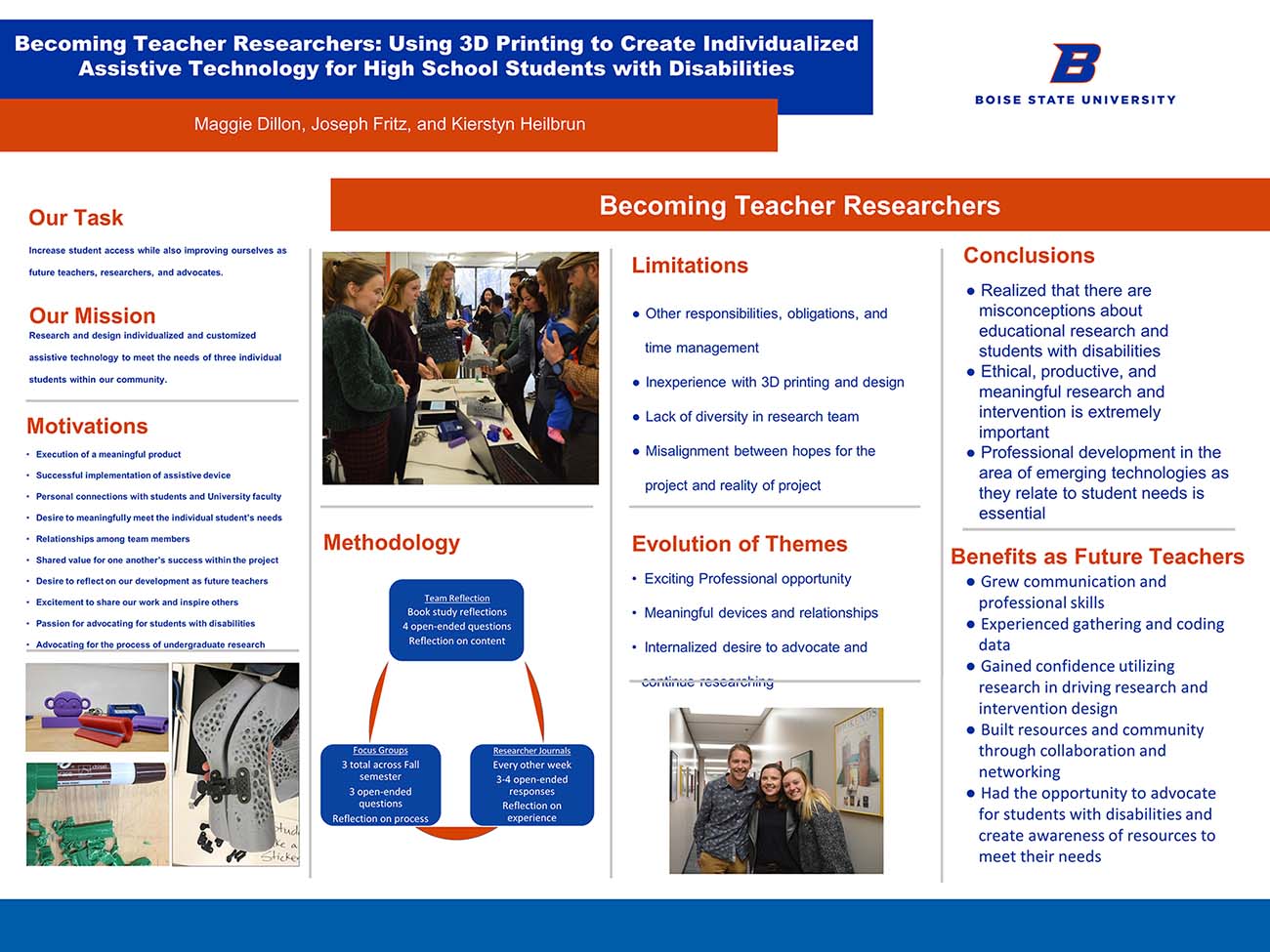Using 3D Printing to Create Individualized Assistive Technology for High School Students with Disabilities
Maggie Dillon, Joseph Fritz, Kierstyn Heilbrun, Dr. Lisa Beymer

Our Task
Increase student access while also improving ourselves as future teachers, researchers, and advocates.
Our Mission
Research and design individualized and customized assistive technology to meet the needs of three individual students within our community.
Motivations
- Execution of a meaningful product
- Successful implementation of assistive device
- Personal connections with students and University faculty
- Desire to meaningfully meet the individual student’s needs
- Relationships among team members
- Shared value for one another’s success within the project
- Desire to reflect on our development as future teachers
- Excitement to share our work and inspire others
- Passion for advocating for students with disabilities
- Advocating for the process of undergraduate research
Methodology
Team Reflection
- Book study reflections
- 4 open-ended questions
- Reflection on content
Focus Groups
- 3 total across Fall semester
- 3 open-ended questions
- Reflection on profess
Researcher Journals
- Every other week
- 3-4 open-ended questions
- Reflection on experience
Limitations
- Other responsibilities, obligations, and time management
- Inexperience with 3D printing and design
- Lack of diversity in research team
- Misalignment between hopes for the project and reality of project
Evolution of Themes
- Exciting Professional opportunity
- Meaningful devices and relationships
- Internalized desire to advocate and continue researching
Conclusions
- Realized that there are misconceptions about educational research and students with disabilities
- Ethical, productive, and meaningful research and intervention is extremely important
- Professional development in the area of emerging technologies as they relate to student needs is essential
Benefits as Future Teachers
- Grew communication and professional skills
- Experienced gathering and coding data
- Gained confidence utilizing research in driving research and intervention design
- Built resources and community through collaboration and networking
- Had the opportunity to advocate for students with disabilities and create awareness of resources to meet their needs
Additional Information
For questions or comments about this research, contact Joseph Fritz at josephfritz@u.boisestate.edu.